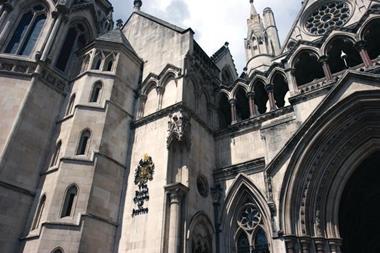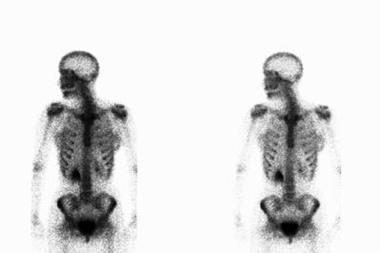It looks as if the proposed UK legislation on corporate killing may at last make it to the statute book. Andrew Stokes provides an update.
More than 10 years after the Law Commission's first proposals, the UK Corporate Manslaughter and Corporate Homicide Bill is now reaching the final stage of its long journey and is expected to become law this summer. Whether the bill should cover deaths in custody remains, however, a vexed issue and may yet hold up the Bill's implementation if John Reid, the Home Secretary, is unable to persuade the House of Commons to reject a House of Lords' amendment to include deaths in custody. If the amendment is upheld in the Commons, John Reid, who seems determined to have deaths in custody excluded, may resort to implementing the Bill in its original form under the Parliament Act procedures.
<B>New offence</B>
While significantly watered down from the original proposals, the new offence of corporate manslaughter constitutes a workable, although imperfect, response to the most serious health and safety offences. The substantial fines on conviction will mark society's disapproval of grave breaches of responsibility for health and safety.
The Government predicts only around a dozen cases a year, with those organisations which cause major disasters, especially if they involve the public, as the most likely targets. But the offence is not reserved exclusively for such cases, and there is a real prospect it will used far more widely.
Importantly, the offence has not been extended to apply to individuals, although they remain liable to prosecution under existing manslaughter laws. But it will apply to almost every organisation, and in a broad range of situations where a duty of care is owed.
Although Crown immunity has been removed, exemptions for 'exclusively public functions' remain, as do exemptions for certain operational activities by the armed forces, police and other law enforcement agencies, and for emergency, probation and child protection services. These exemptions are contentious and have been the subject of parliamentary debate. For instance, under the new law as currently worded, the police would probably be exempt from prosecution for the shooting of Jean Charles de Menezes, and the Child Protection Service for the Victoria Climbie tragedy. However, an individual involved in such a death would remain liable to prosecution under existing manslaughter laws.
<B>Senior management failure</B>
A significant amendment has been made to the widely criticised requirement that an organisation's breach must be due to a 'senior manager's failure'. This has been redrafted to 'senior management failure', thereby removing the individual identification requirement, which has been so problematic under the existing law.
Additionally the senior management failure must have been a substantial element of the organisation's breach of duty. This should provide some comfort to organisations, as it does seem to raise the bar for proving the causation element of the offence.
The failure must also be gross, falling far below the expected standard, with particular reference to health and safety legislation and guidance. The jury, must decide whether the failure is so bad as to be gross, and must also consider how far the breach posed a risk of death, and whether specific cultural issues such as attitudes or accepted practices within the organisation contributed to it.
The penalty on conviction is an unlimited fine which, in the current climate, will be very substantial. Further sentencing guidelines are expected in due course.
Many people have expressed concern at the lack of more innovative sanctions in the Bill, and the Macrory review, published last November, has recommended that the Government considers introducing other sentencing options, such as profit orders, corporate rehabilitation or publicity orders. Provision for the imposition of publicity orders has now been included by amendment to the Bill in the House of Lords.
<B>Disqualification</B>
Directors convicted under s37 of the Health and Safety at Work Act, can be disqualified from acting as a director under the Company Directors Disqualification Act 1986. That sanction is not available for the corporate manslaughter offence under the new Bill, as it applies against organisations alone. However, the Government has agreed to look at introducing disqualification through other legislation, despite concerns that it would effectively be tantamount to imposing individual liability through the back door.
<B>Insurance cover</B>
Defence costs for any organisation hit with a manslaughter enquiry are substantial, so ensuring that insurance liability policies provide cover for the new statutory offence of corporate manslaughter is vital. Directors and managers should check they are protected by their insurance policies in the event they are investigated or prosecuted for gross negligence manslaughter. It is also critical that indemnity limits are sufficient to cover the cost of preparing a thorough defence, and for support to minimise the reputational damage and financial penalty that these prosecutions can cause, as well as protecting the liberty of individual directors and senior managers who may find themselves embroiled.


















